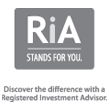Most employers, especially the medium and large-sized ones, provide some sort of retirement plan. A large percentage of those are traditional 401(k)s, where you contribute pre-tax dollars into the plan, you do not pay any taxes on gains inside the plan, and then every single dollar you take out of the plan in the future is fully taxable. Another well-known retirement account is the Roth IRA, which is almost the complete opposite of the 401(k). Like 401(k)s, the growth inside Roth IRAs is not taxed, but unlike 401(k)s, post-tax dollars go in, you can’t save into them right out of your paychecks, and every single dollar you take out of the Roth IRAs in the future will not be taxed at all. People who can save into both generally do so, and people that can’t have to choose between reducing their taxes today by saving into 401(k)s but paying taxes later versus not reducing their taxes today by saving into Roth IRAs but avoiding all taxes later.
Within the past few years, more and more employers have started offering Roth 401(k)s, which behave just like Roth IRAs with two important exceptions: you can save much more into Roth 401(k)s than you can Roth IRAs, and you can contribute to Roth 401(k)s no matter how much you make, unlike Roth IRAs where you can’t make above certain amounts.
So why choose one 401(k) over the other? Well, if you are in a low tax bracket today and expect your retirement savings to grow much larger over time, if you are on the younger side for example, the small amount of taxes you have to pay today on those earnings before they go into the Roth 401(k) might be worth it considering just how much you’ll be saving in the future. Even if you’re in a higher bracket and you’re no longer considered a young employee, you may still want to protect against taxes being much higher in the future and a Roth 401(k) could be one way to go. Additionally, even if you are in the 25% or higher tax bracket, if you already have a lot saved in 401(k)s and IRAs that will be taxed heavily during retirement, and especially if you make too much to save into a Roth IRA, you may consider a Roth 401(k) for the tax advantages it provides you later on.
Why not consider both kinds of 401(k)s? Consider utilizing the Roth 401(k) to save some for the future tax advantage, and then save the rest into the traditional 401(k) for the current tax advantage. One last benefit to a Roth 401(k) is that in the future, you could roll those dollars into a Roth IRA and never be forced to take required minimum distributions like you will from traditional 401(k)s and traditional IRAs.


